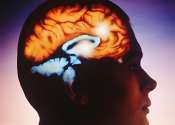Researchers discover glial hyper-drive for triggering epileptic seizures
Epilepsy, where patients suffer from unexpected seizures, affects roughly 1% of the population. These seizures often involve repetitive and excessive neuronal firing, and the trigger behind this still poorly understood.
Apr 19, 2024
0
36








